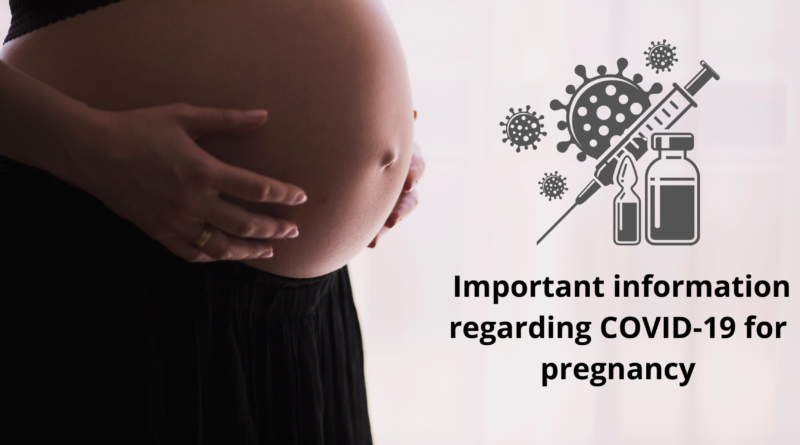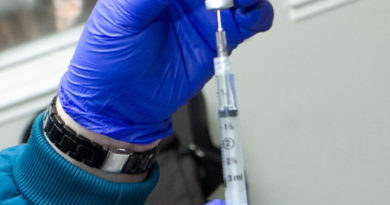COVID-19 Vaccinations and Pregnancy: Is It Safe?
- Women are at high risk for serious complications if they contract COVID-19 while pregnant.
- The COVID-19 vaccines are approved and strongly recommended for pregnant women
- Women who are vaccinated during pregnancy can possibly transfer antibodies to the baby
People who are pregnant, breastfeeding, or thinking of having a baby have expressed concerns about the COVID-19 vaccine and what getting vaccinated means for the health of their pregnancies. According to the Centers for Disease Control and Prevention, the COVID-19 vaccine works in the same way other vaccines do by creating defensive white blood cells that protect the body and help fight the virus in case of reexposure.
“Unvaccinated women that are pregnant can get seriously ill and end up in the intensive care unit with respiratory distress,” said Dr. Kim Ervin, an OB GYN physician for Open Door Clinic in Arcata. “Pregnant women infected with the coronavirus are 40% more likely to develop complications or die during pregnancy than those who are not infected.”

It is advised for pregnant women to get the vaccine as it can help protect them and their unborn child against COVID-19. Sofia Pereia, public health director for Humboldt county shared how getting the vaccine would have helped her experience.
“From personal experience I was half way through my pregnancy in the beginning of this pandemic and for me it would have given me a lot of peace of mind to be able to get vaccinated to know myself and my baby were going to be safe,” Pereia said. “Luckily we were fine but it was stressful.”
Should people who want to become pregnant, are pregnant or are breastfeeding get the vaccine for COVID-19?
The COVID-19 vaccines are approved by the CDC and the Food and Drug Administration for people who are pregnant and breastfeeding. Both doses of the vaccine plus the booster are highly recommended because people who receive the vaccine are less likely to have serious symptoms if they get COVID-19.
Currently, there is no evidence showing vaccines pose any serious risks during pregnancy. According to the CDC, the benefits of getting any COVID-19 vaccine outweighs any concern or possible risk.
Why is it important for pregnant women to get the COVID-19 vaccination?
Getting the COVID-19 vaccine while pregnant, trying to conceive or breastfeeding lowers the risk of becoming severely ill while pregnant.
“We’ve seen this locally in cases where pregnant women have had much more severe outcomes than non pregnant women so it’s definitely a real concern and we encourage everyone to talk to their doctor and get vaccinated for COVID-19 during the pregnancy,” said Dr. Ian Hoffman, recently resigned Humboldt County Health Officer.
Can a mother pass antibodies to the baby after vaccination?
New research suggests that babies are able to be given some antibodies if the mother is vaccinated during the pregnancy. The CDC confirmed antibodies have been found in the umbilical cord blood of vaccinated mothers which means COVID-19 vaccination may help protect the infant against contracting COVID-19.
Dr. Ervin stated the virus itself was not transferred to the baby but the protective antibodies are. When a pregnant woman receives the COVID-19 vaccine the woman’s body creates protective antibodies, some of which are passed onto the infant. Over time the antibodies in the infants system will decline, but in the first few months of their lives infants can potentially receive immunity from COVID-19.
Which vaccines are recommended for pregnant women?
The Pfizer and Moderna vaccines are recommended by the CDC and Dr. Ervin for women who are pregnant, breastfeeding and are looking to conceive. This is due to the Pfizer and Moderna vaccine having done more research about pregnancies and vaccines.
Possible side effects from receiving a COVID-19 vaccine while pregnant?
Possible side effects from receiving any of the COVID-19 vaccines include fever, muscle pain, tiredness, chills and nausea. If you are prone to allergic reactions be sure to communicate this to the person administering the vaccine. Rare cases an allergic reaction to any of the COVID-19 vaccines may occur.
Research from the CDC shows pregnant women have not experienced different side effects from those who are not pregnant. Be sure to reach out to your doctor for more information about the best option for your pregnancy.




